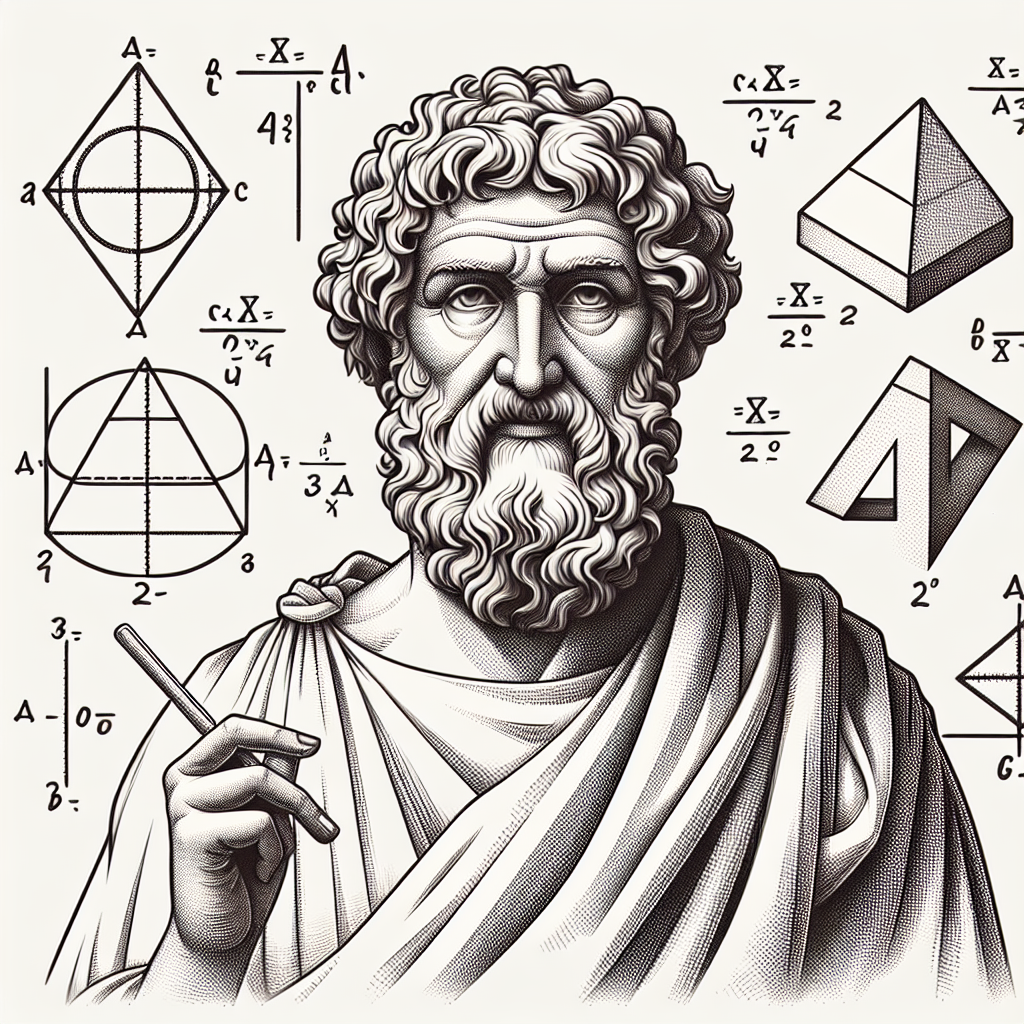Who the Hell was... Pythagorus?

Pythagoras was born around 570 B.C. on the island of Samos. He was an ancient Greek philosopher and mathematician who became famous for his love of numbers. Despite the challenges of using the complex Greek alphabet for math, he made groundbreaking contributions that changed how we understand mathematics. The Western usage of letters A>B>C in algebra and calculus, for example, come from the usage of Greek characters to mean different amounts.
Most people know Pythagoras for the "Pythagorean theorem," which states that in a right triangle, the square of the longest side (the hypotenuse) equals the sum of the squares of the other two sides. This simple formula—(a^2 + b^2 = c^2)—is a fundamental concept in geometry. It should "wow" us, but its a labored education just to remember it. We no longer stand amazed at such sleight-of-perceptions, these understandings are the basics, not the exception, to the rule of learning.

Pythagoras was obsessed with numbers, believing they held mystical significance and could explain the universe. He thought that everything in life, from music to the stars, was connected through numbers. This obsession led him to form a community in Croton, Italy, known as the Pythagoreans. They lived by strict rules, including being mostly vegetarian, and they shared a deep belief in the power of numbers.
Pythagoras’ ideas laid the foundation for future mathematicians and philosophers. His theorem is still taught in schools today, and his belief in the connection between numbers and the universe influenced many great thinkers throughout history.
